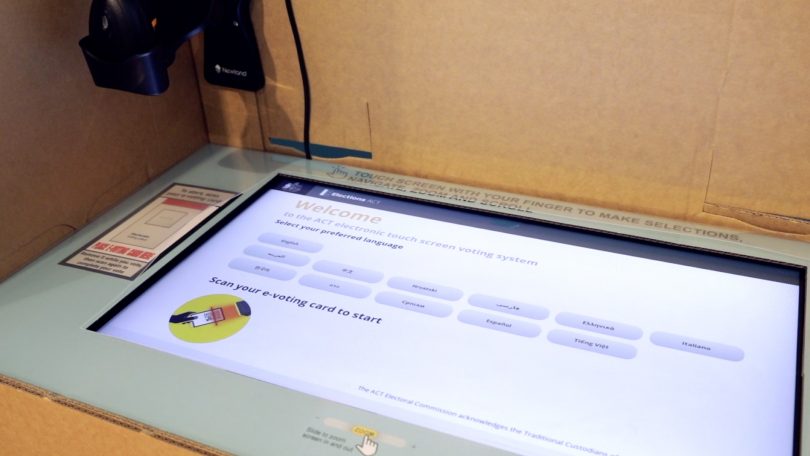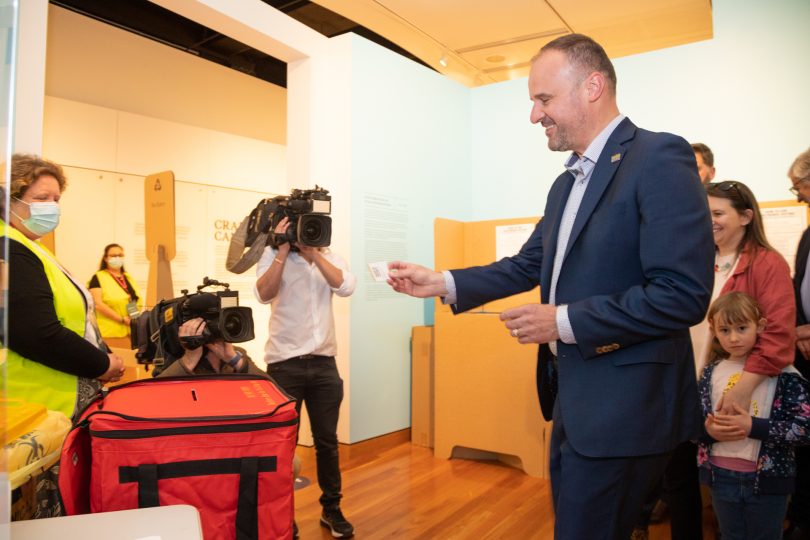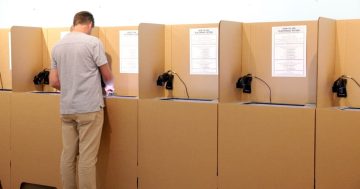
The voting touch screen at the CMAG polling station in the city. Photo: Region Media.
I am going to do something today that I haven’t done before – vote early and cast my ballot electronically.
Usually a stickler for the polling day ritual, I am now a convert to the idea of spreading the vote out over the pre-poll period and using the touch screen technology to make my choices.
It’s safe, it makes sense and it’s secure.
And if most of us do likewise, we will know the result before the 7:00 pm news, even in a jurisdiction that uses the notoriously complicated Hare-Clark proportional representation system.
Electronic voting has been available in the ACT since 2004, but this time due to COVID-19 it will be available at multiple early voting centres across Canberra and for the first time an Australian election is likely to be decided this way.
Elections ACT, health authorities and Chief Minister Andrew Barr have all urged voters to vote early and the response so far signals that the vast majority of the electrorate will do so, and most will eschew pencil and paper for the secure e-card to make their selections at a console.
Voters scan the card, which has a barcode-like symbol on it, at the console, and then a large touchscreen displays the candidates’ names and parties.
They then use a touch screen to select candidates in their order of preference, and if they make a mistake, they can undo it or start over again.
When done, they scan their card once more to finalise their vote and lodge the card in a special ballot box.
It is not an online process connected to the Internet and can’t be hacked and subject to fraud.

Andrew Barr about to cast his e-card ballot for the 2020 ACT election. Photo: Michelle Kroll.
The implications are enormous and will change the way elections are fought, run and decided.
The front-loading of data and computer distribution of preferences will mean a fast, efficient count that will take the drama out of many an election night but should also mean fairer and less contentious contests.
The sight of scrutineers carefully patrolling the count and disputing ballot papers should be a thing of the past.
And it should make it less likely that ballots are miscounted or misread, and result in a more accurate count.
In a world where we regularly use ATMs and scan our own groceries at the supermarket, voting this way should be no more difficult.
Of course, the key factor in any voting system is the integrity of those running the election.
In this, Australia is blessed to have independent electoral commissions whose only duty is to the electorate, not governments or parties.
The contrast with the electoral mess in the world’s so-called greatest democracy could not be more striking.
Electronic voting is yet another feather in the ACT’s cap and will only reinforce a powerful democratic culture nurtured by compulsory voting, balanced electorates drawn by the electoral commissions and a general acceptance that voting should be easy and accessible for everyone.
It may take some time for it to become universally accepted across the nation but, short of a catastrophic computer crash or power blackout, the 2020 ACT election should mount a strong case to put the pencil away.





















